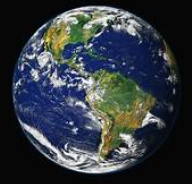Earth, our home, is a unique and diverse planet teeming with life. It is the third planet from the sun and the only known celestial body to support life. From the towering mountains and vast oceans to the intricate ecosystems and varied climates, Earth is a testament to the wonders of nature and the intricate balance that sustains life. This article delves into the remarkable features of our planet, its environmental challenges, and the efforts being made to preserve its beauty and vitality.
The Blue Planet
Often referred to as the "Blue Planet," Earth is distinguished by its abundance of water. Approximately 71% of the Earth's surface is covered by oceans, which play a crucial role in regulating the planet's climate and supporting marine life. These vast bodies of water are home to a myriad of species, from the smallest plankton to the largest whales, and are integral to the water cycle that sustains life on land.
Diverse Landscapes
Earth's landscapes are incredibly varied, ranging from the icy expanses of the polar regions to the lush rainforests near the equator. The planet boasts majestic mountain ranges, such as the Himalayas and the Andes, expansive deserts like the Sahara and the Gobi, and fertile plains that support agriculture and human settlement. These diverse environments are shaped by geological processes, such as plate tectonics and volcanic activity, which continue to mold the Earth's surface.
Ecosystems and Biodiversity
One of Earth's most remarkable features is its biodiversity. The planet is home to millions of species of plants, animals, fungi, and microorganisms, each playing a unique role in their respective ecosystems. Tropical rainforests, coral reefs, and wetlands are among the most biodiverse habitats, supporting a vast array of life forms. Biodiversity is crucial for ecosystem resilience, providing services such as pollination, water purification, and climate regulation.
Climate and Weather
Earth's climate is influenced by its position relative to the sun, its atmosphere, and its oceans. The planet experiences a wide range of weather patterns and climatic zones, from the tropical heat of the equator to the frigid temperatures of the poles. Climate change, driven by human activities such as deforestation and the burning of fossil fuels, is causing shifts in weather patterns, rising sea levels, and more frequent extreme weather events. Addressing climate change is one of the most pressing challenges facing humanity today.
Environmental Challenges
As human populations grow and industrial activities expand, the impact on Earth's environment has become increasingly significant. Deforestation, pollution, overfishing, and habitat destruction are threatening the delicate balance of ecosystems and the species that depend on them. Additionally, the accumulation of greenhouse gases in the atmosphere is driving global warming, which poses a threat to both natural and human systems.
Conservation and Sustainability
Efforts to protect and preserve Earth's natural resources and biodiversity are crucial for ensuring a sustainable future. Conservation initiatives, such as the establishment of protected areas, reforestation projects, and wildlife conservation programs, aim to safeguard ecosystems and species. Sustainable practices in agriculture, fishing, and energy production are essential for reducing the human footprint on the planet. International agreements, like the Paris Agreement, represent a collective effort to address climate change and promote environmental sustainability.
The Role of Education and Awareness
Raising awareness about the importance of environmental stewardship is vital for fostering a culture of conservation. Education programs, media campaigns, and community initiatives can empower individuals to make informed decisions and take action to protect the planet. By understanding the interconnectedness of Earth's systems and the impact of human activities, people can contribute to a more sustainable and harmonious relationship with nature.
Conclusion
Our Earth is a remarkable planet, rich in natural beauty and biodiversity. Its varied landscapes, complex ecosystems, and dynamic climate make it a unique and precious home for countless species, including humans. However, the environmental challenges we face require urgent and concerted efforts to preserve the planet for future generations. By embracing sustainable practices, supporting conservation efforts, and raising awareness about the importance of environmental stewardship, we can ensure that Earth's wonders continue to thrive. Let us cherish and protect our home, the Blue Planet, and work together to create a sustainable and vibrant future for all.

